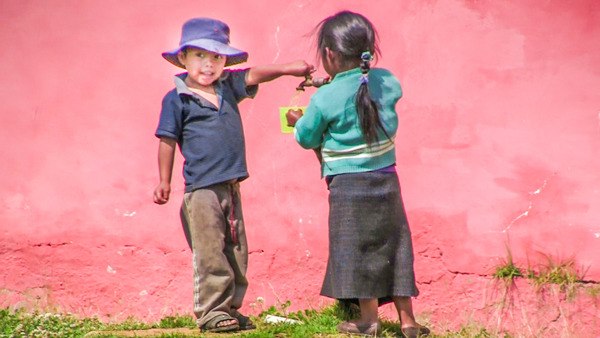The Mayans call him a saint.
The doctor, Sergio Castro, has spent the past 51 years tending to the peoples’ medical, educational and basic needs.
Each day, Castro traverses the terrain of Chiapas, Mexico, to apply salves to badly burned bodies and administer medicines to patients suffering ailments ranging from diabetes to ulcers. He treats around 5,000 patients a year.
Castro’s patients have no money with which to pay him, though he would not accept it if they did. Castro says it is against his principles to profit off of the suffering of others. He has no income; his practice is funded entirely by donations from fellow humanitarians like Langley residents John and Marie Plakos, members of the Rotary of South Whidbey, who met the doctor at a fundraiser in 2011.
On Nov. 15, John Plakos, a retired cultural attache, became the first non-medical person to accompany Castro on his morning rounds. He visited seven different homes where, having been introduced as the person who funded the medicine, he was welcomed warmly and permitted to videotape the treatments.
“I felt that Sergio’s message should be known to the world,” said Plakos, who has developed a short DVD of the experience. “He’s been doing this for over 51 years with no help from the government or the hospitals.”
During Castro’s regular morning rounds, Plakos recalled meeting and observing the treatment of a woman with a severely burned upper body and a man whose diabetes had necessitated the amputation of his leg. Though some treatments were surely painful, Plakos said, Castro’s patients remained at ease, relaxed perhaps in part by the doctor’s expert bedside manner, a medley of light-heartedness and sincere compassion.
“It was a dramatic experience for me, one that I will never forget,” said Plakos. “I felt really honored.”
Plakos and his wife, Marie, have collaborated with Rotary International to donate repeatedly to Castro’s cause and have visited Chiapas on multiple occasions to provide hands-on assistance.
In addition to his daily medical rounds, Castro has built 32 elementary schools and installed a handful of clean-water wells for the Mayans with the help of donors such as the Plakos.
The modern Mayans — the indigenous people of Mexico — live in destitution amongst the ruins of their ancestors, a society of people dating back to 1800 B.C. who were revered for their advanced knowledge of astronomy and agriculture, poetry and mathematics and, perhaps most famously, calendar-making and architecture.
There is some speculation as to what caused the initial decline of the Mayan civilization; but the Spanish conquest of the 1500s abruptly vanquished what was left.
“A tragedy is that the Maya civilization was one of the world’s most advanced civilizations, only to be destroyed by Cortes in two years,” said Plakos.
Since then, the Mayan people have been relegated to the underclass, shunned and disregarded by the Mexican government.
Maya in Chiapas are largely isolated. Most are unable to find work and do not have a source of income. If a Maya seeks treatment at a hospital in Mexico, they are likely to be turned away or ignored, said Plakos.
Mayans living in Chiapas make up 4 million of the 118 million person population of Mexico. The average life expectancy in Mexico is 78 years while, for the Maya, it is 44 years. The poverty level in Mexico is 14 percent, for Maya 70 percent. About 46 percent of Maya have running water, but 90 percent or more of the water is contaminated.
Initially, Plakos said, Castro was inspired to begin serving the Mayans when he was helping farmers install irrigation systems and was approached by a man whose son had been badly burned. “He did what he could,” said Plakos. “He started using the medicines that the Mayans had used for thousands of years, and from that point on it just sort of snowballed. Word circulated.”
Believing that anyone who is ill or hurt should receive help, and knowing the hospitals and government would not provide it, Plakos began his work.
Patricia Ferrer, a registered nurse from Arizona, has donated at least two weeks a year for the past nine years to assist Don Sergio with treating patients.
“I don’t know how he has been able to continue with such a heavy load,” she once confided to Plakos.
Donations for the doctor’s medical practice, wells and schools can be made to the Foundation of South Whidbey Rotary. The Rotary of South Whidbey address is PO Box is 444 in Freeland, 98249. Donors may write Castro’s name as a memo of the check to designate the donation to his cause.
Update: Plakos noted that prospective donors may contact him directly for further information regarding Castro’s work and donation options. He can be reached via phone at 360 321 2684 or via email at john.plakos@whidbey.com.



